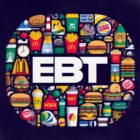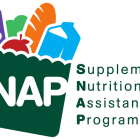Can a Student Get Food Stamps – Eligibility for Students

The Supplemental Nutrition Assistance Program (SNAP), formerly called food stamps, assists low-income households in purchasing food. Specific eligibility requirements for the program vary between states, but individuals and families must generally meet income and asset limits to qualify and receive assistance.
Enrolling in SNAP might be the best way to reduce hunger, especially on campuses, as many students in institutions of higher learning experience significantly higher food insecurity than the national average. But can a student get food stamps? If so, what categories of students qualify, and what rules apply?
This guide explains the eligibility requirements for students to get SNAP benefits. If you are a student struggling to feed properly, we recommend you keep reading to learn whether you qualify for government assistance in getting food.
Are Students Eligible for SNAP?
In the past, federal policies made many students attending institutions of higher learning (more than half-time) ineligible for SNAP to prevent them from getting the assistance they don’t really need.
However, with the recent changes in SNAP rules, higher education students may qualify for Food Stamps.
The Food and Nutrition Service of the US Department of Agriculture (USDA) extends SNAP eligibility to students enrolled less than half-time in an institution of higher learning. This category of students must meet other SNAP qualification requirements to receive benefits.
Clarification on Student Enrollment Status for SNAP Purposes
Students looking to get food stamps should keep the following in mind:
- Institution of higher learning: You are enrolled in an institution of higher learning if you run a degree program in a university or regular curriculum at a college. This definition also applies to students enrolled in business, vocational, trade, or technical schools requiring a high school diploma or General Educational Development (GED) certificate.
- Half-Time: Half-time enrollment is determined by your university, college, or school. Students can learn their enrollment status (full-time or half-time) from their school. The half-time enrollment rule does not apply to all students (see Students Exemptions for SNAP in the next section).
- Work-study: The institution of higher learning will determine if a student qualifies for work-study (regardless of whether or not they actually participate in a state or federal work-study program).
What Students Can Receive Food Stamps (SNAP Eligibility for Students)
Now that we’ve answered the question, “Can a student get food stamps?” it’s time to clarify the category of learners that can receive SNAP benefits.
Eligibility for food stamps is typically based on the assets and income of households. This rule excludes many college students and limits SNAP eligibility to fewer non-traditional students who work and earn a low income.
Previously, only students participating in federal or state work-study could receive SNAP benefits. That rule has since changed, thanks to the new temporary COVID-19 exemptions. Now, students can get food stamps without actually participating in work-study programs as long as they are eligible for work-study during the current academic year.
Also, students may become eligible for food stamps if their Expected Family Contribution (EFC) is zero.
In addition to the above, students who meet one of the following exemptions may be eligible for SNAP (if they meet other requirements):
Age and Disability Exemption
- Students older than 49 or younger than 18.
- Students who can’t work because they are physically or mentally disabled, even if they are not permanently disabled (although they may need to provide medical proof).
Parent or Caregiver Exemption
- Full-time college student who is a single parent and caring for a child 11 years old or under.
- Students who are caregivers or parents (including single parents) caring for a child under 6 years old.
- Students who are caregivers or parents (including single parents) caring for a child between the ages of 6 and 11 and who can’t get adequate childcare to enable them to attend classes and participate in work-study or work for 20 hours weekly. This exemption applies whether or not the student is employed.
Employed/Work-Study
- Students who participate in state or federal work-study programs.
- Students who are employed and work at least 20 hours per week.
Receiving TANF Benefits
- Students who receive monthly cash assistance from the Temporary Assistance for Needy Families (TANF) program.
- Students who receive diversion payments, childcare, and other TANF-funded benefits.
Enrolled in Job-Readiness Programs
- Students enrolled in TANF Job Opportunities and Basic Skills program.
- Students who participate in on-the-job training programs.
- Students who are assigned to any institution of higher education through the SNAP Employment and Training program, Trade Adjustment Assistance program, Workforce Investment Act program, and similar state or local government job training programs.
Special SNAP Rules for Immigrant Students
Immigrant students learning about SNAP for the first time often ask, “Can a student get food stamps if they are non-citizens?”
Most lawfully residing immigrant students may be eligible for Food Stamps under the following special SNAP rules:
- Adult non-citizen students (18 and older) who are Lawful Permanent Residents (LPRs) or “green card” holders may be eligible for SNAP after a 5-year waiting period.
- Qualified immigrant students under 18 may be eligible for SNAP without the waiting period.
- Eligible members of a mixed-status immigrant household can receive food stamps, even if some family members are ineligible for SNAP because of their immigration status.
While no student in the United States should go hungry, people who entered the country without inspection (illegal entrants) and those with expired nonimmigrant visas have never been eligible for SNAP.
To be clear, the following immigrant students cannot get food stamps:
- Undocumented non-citizens
- Non-citizens with student visas or temporary status
- Non-citizens who are out of status
- Students granted Deferred Action for Childhood Arrivals (DACA)
Required Documents for SNAP-Eligible Students
If you qualify to get food stamps as a student, you may be required to provide any of the following documents:
- A letter from your school confirming you are eligible for work-study, or
- A copy of your financial aid award letter showing your work-study eligibility.
If you are a student with an EFC of 0, you may be asked to provide a letter from your school or a copy of your Student Aid Report (SAR) confirming that your EFC is 0.
In some cases, you may be required to present a letter from your school or a financial aid award letter containing the Pell Grant amount you receive.
You Can Get Help
Can a student get food stamps? Yes, students may enroll in the food stamp program and receive government assistance if any of the exemptions we’ve covered in this article applies to them. Remember that students must also meet the regular asset and income limits for SNAP eligibility.
Unfortunately, many students in institutions of higher education who may be eligible for SNAP are not aware that they can apply. To make things worse, those who know are not usually eager to enroll in the government assistance program because the application process can be confusing.
As a student, you should never be in a situation to choose between a meal and school. If you meet the exemption for students, we encourage you to read our easy-to-understand guide on how to apply for Food Stamps.



